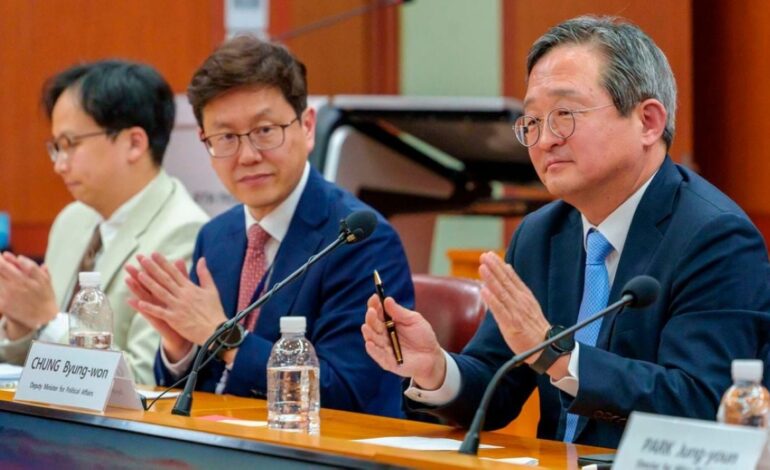
Faith Nyasuguta
Rice, although not a staple in much of Africa, has emerged as one of the most consumed cereals in the region, leading to initiatives like K-Rice, a technology introduced by Koreans in recent years to enhance seed yield.
This innovative approach has garnered attention in countries like Kenya and Uganda, where pilot projects have been underway. The K-Rice Belt extends beyond these initial sites, encompassing a broader swath of the continent, including nations like Senegal, Gambia, Guinea Bissau, Guinea, Ghana, and Cameroon. The project has yielded promising results, with the production of 2,040 tonnes of seed in 2023 alone.
“Even if the technology is small, as long as it is rooted in the local people, it will have a significant impact,” emphasizes Kim Hwang Yong, director-general for Technology Cooperation Bureau of the Rural Development Administration in South Korea. This underlines the transformative potential of such innovations for enhancing food security in Africa.
Kim’s remarks highlight South Korea’s commitment to leveraging its technological expertise to support agricultural development on the continent.
Speaking ahead of the first-ever Korea-Africa Summit, Korean officials emphasized the broader scope of the summit beyond rice and food.
“Korea is willing not only to increase the quantity but also the quality and efficacy of its assistance to Africa,” stated Chung Byung-won, South Korea’s Deputy Minister for Political Affairs in the Ministry of Foreign Affairs, highlighting Korea’s commitment to tailored support for African nations. This sentiment reflects a strategic approach to partnership-building, focusing on addressing the specific needs and conditions of each African country.
While Korea’s official development assistance to Africa may be smaller compared to other players, it focuses on non-financial support such as scholarships, technology assistance, and training.
Ngovi Kitau, a former Kenyan ambassador to South Korea, stressed the importance of African countries aligning with Agenda 2063 of the African Union and leveraging local think tanks to prepare policy briefs for the summit. “It is policy which gets funded, not good speeches,” Kitau remarked, highlighting the need for actionable policies to attract funding and investment.

Seoul sees Africa’s burgeoning market and ambitious growth as potential opportunities for its firms, particularly in sectors like minerals. “Africa’s burgeoning market and ambitious own growth and supply chain diversification” offer lucrative opportunities for Korean industries,” Kitau suggested, pointing to the potential for mutually beneficial partnerships between Korean companies and African counterparts.
In summary, the Korea-Africa Summit presents a platform for strategic partnership and mutual benefit, with a focus on addressing Africa’s development challenges and leveraging its economic potential for shared prosperity. Through initiatives like K-Rice and strategic assistance programs, South Korea aims to contribute to Africa’s sustainable development and foster a robust and mutually beneficial relationship between the two regions.
RELATED:




